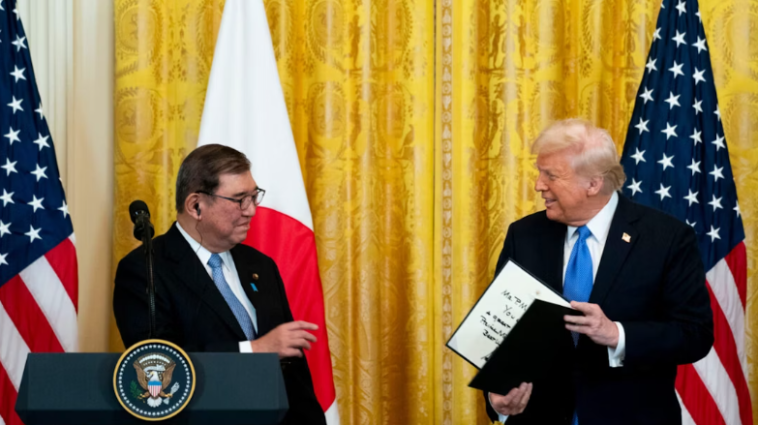In a strategic move to bolster American manufacturing while safeguarding national interests, President Donald Trump has facilitated a significant investment by Japan’s Nippon Steel into U.S. Steel, effectively averting a complete foreign acquisition. This development underscores the administration’s commitment to strengthening domestic industries through international collaboration without compromising sovereignty.
Background
In early January, then-President Joe Biden blocked Nippon Steel’s $14.9 billion bid to acquire U.S. Steel, citing national security concerns. Biden emphasized that placing a major American steel producer under foreign control could jeopardize critical supply chains and national security.
President Trump, while agreeing with the decision to prevent the full acquisition, sought a middle ground that would welcome foreign investment without relinquishing American control. Announcing the compromise, Trump stated, “They’ve agreed to invest heavily in U.S. Steel, as opposed to own it.”
Details of the Investment
The specifics of Nippon Steel’s investment are still under negotiation. President Trump plans to meet with executives from both companies to finalize terms, aiming to ensure that the partnership enhances U.S. Steel’s capabilities while preserving American jobs and operational control.
Japanese Prime Minister Shigeru Ishiba highlighted the mutual benefits of the deal, noting that Nippon Steel would provide advanced technology to improve U.S. manufacturing. He emphasized, “It is not one-sided. It will be reciprocal; it will be mutually beneficial.”
Market Reactions and Legal Challenges
Following the announcement, U.S. Steel’s share price dipped nearly 6% to close at $36.98, reflecting market uncertainty regarding the revised investment plan compared to the initial acquisition proposal.
Both Nippon Steel and U.S. Steel have filed lawsuits challenging the Biden administration’s initial block of the acquisition, alleging that the decision exceeded constitutional limits and was influenced by political considerations. These legal challenges may impact the timeline and structure of the finalized investment.
Industry Implications
The compromise allows U.S. Steel to benefit from significant foreign investment and technological advancements without ceding ownership. This approach aligns with the administration’s broader strategy of attracting foreign capital to strengthen domestic industries while maintaining national control.
Meanwhile, Cleveland-Cliffs, another major player in the American steel industry, has expressed renewed interest in acquiring U.S. Steel. The company is reportedly exploring partnerships to present a competitive bid, potentially involving the divestiture of key U.S. Steel assets. Industry observers are closely monitoring these developments, anticipating further shifts in the competitive landscape.
Conclusion
President Trump’s facilitation of Nippon Steel’s investment in U.S. Steel represents a pragmatic approach to international collaboration, balancing the infusion of foreign capital and technology with the imperative of maintaining American ownership and control. This move not only strengthens the domestic steel industry but also sets a precedent for future foreign investments that prioritize national interests.


